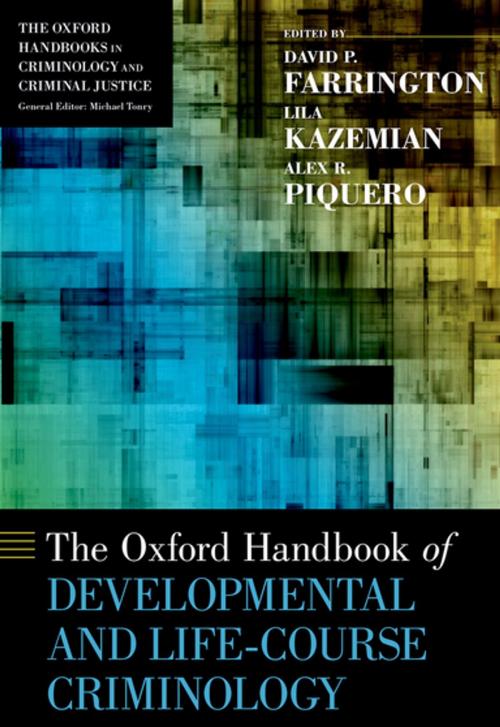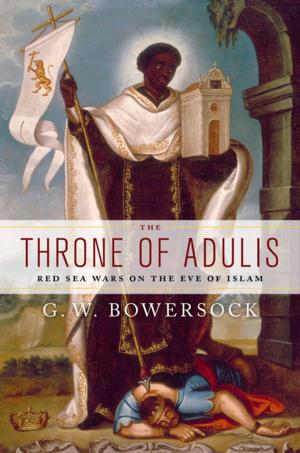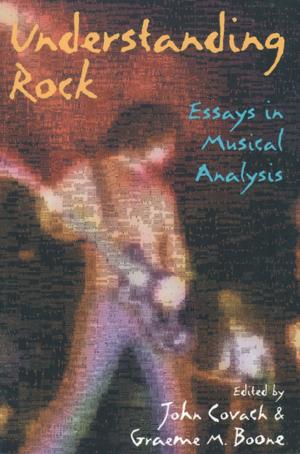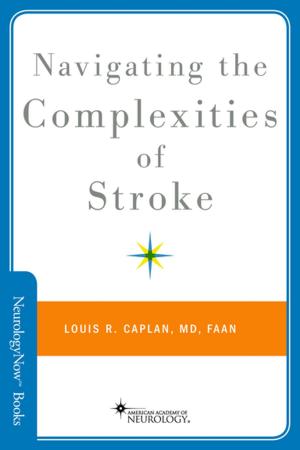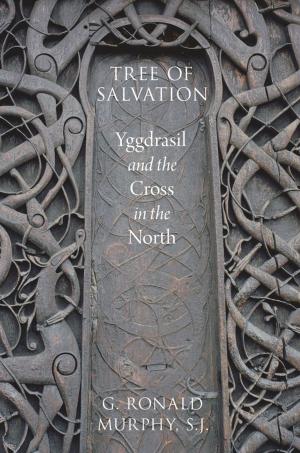The Oxford Handbook of Developmental and Life-Course Criminology
Nonfiction, Social & Cultural Studies, Social Science, Crimes & Criminals, Criminology| Author: | ISBN: | 9780190884895 | |
| Publisher: | Oxford University Press | Publication: | November 23, 2018 |
| Imprint: | Oxford University Press | Language: | English |
| Author: | |
| ISBN: | 9780190884895 |
| Publisher: | Oxford University Press |
| Publication: | November 23, 2018 |
| Imprint: | Oxford University Press |
| Language: | English |
Developmental and life-course criminology are both concerned with the study of changes in offending and problem behaviors over time. Developmental studies in criminology focus on psychological factors that influence the onset and persistence of criminal behavior, while life-course studies analyze how changes in social arrangements, like marriage, education or social networks, can lead to changes in offending. Though each perspective is clearly concerned with patterns of offending and problem behavior over time, the literature on each is spread across various disciplines, including criminology & criminal justice, psychology, and sociology. The Oxford Handbook on Developmental and Life-Course Criminology offers the first comprehensive survey of these two approaches together. Edited by three noted authorities in the field, the volume provides in-depth critical reviews of the development of offending, developmental and life-course theories, development correlates and risk/protective factors, life transitions and turning points, and effective developmental interventions from the world's leading scholars. In the first two sections, the contributors provide overviews of specific criminal career parameters, including age-crime curve, prevalence/frequency of offending, and co-offending, and review the main theoretical frameworks in the developmental and life-course criminology areas. They further summarize some of the empirical literature on known developmental correlates and risk/protective factors associated with longitudinal patterns of offending in the next section. The fourth section focuses on life transitions and turning points as they may relate to persistence in-or desistance from-criminal activity into adulthood, while the final section examines the genesis of antisocial, delinquent, and criminal activity, its maintenance, and its cessation. A state of the art overview on the topic, this Handbook aims to be the most authoritative resource on all issues germane to developmental and life-course criminologists and provides next steps for further research.
Developmental and life-course criminology are both concerned with the study of changes in offending and problem behaviors over time. Developmental studies in criminology focus on psychological factors that influence the onset and persistence of criminal behavior, while life-course studies analyze how changes in social arrangements, like marriage, education or social networks, can lead to changes in offending. Though each perspective is clearly concerned with patterns of offending and problem behavior over time, the literature on each is spread across various disciplines, including criminology & criminal justice, psychology, and sociology. The Oxford Handbook on Developmental and Life-Course Criminology offers the first comprehensive survey of these two approaches together. Edited by three noted authorities in the field, the volume provides in-depth critical reviews of the development of offending, developmental and life-course theories, development correlates and risk/protective factors, life transitions and turning points, and effective developmental interventions from the world's leading scholars. In the first two sections, the contributors provide overviews of specific criminal career parameters, including age-crime curve, prevalence/frequency of offending, and co-offending, and review the main theoretical frameworks in the developmental and life-course criminology areas. They further summarize some of the empirical literature on known developmental correlates and risk/protective factors associated with longitudinal patterns of offending in the next section. The fourth section focuses on life transitions and turning points as they may relate to persistence in-or desistance from-criminal activity into adulthood, while the final section examines the genesis of antisocial, delinquent, and criminal activity, its maintenance, and its cessation. A state of the art overview on the topic, this Handbook aims to be the most authoritative resource on all issues germane to developmental and life-course criminologists and provides next steps for further research.
